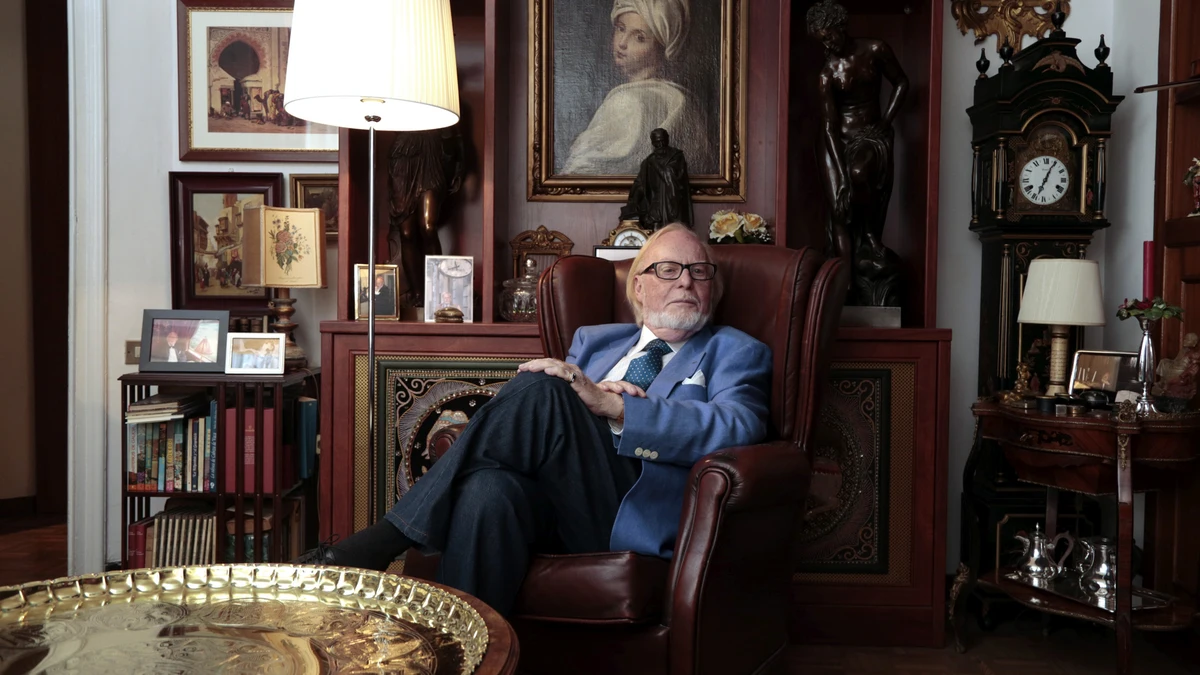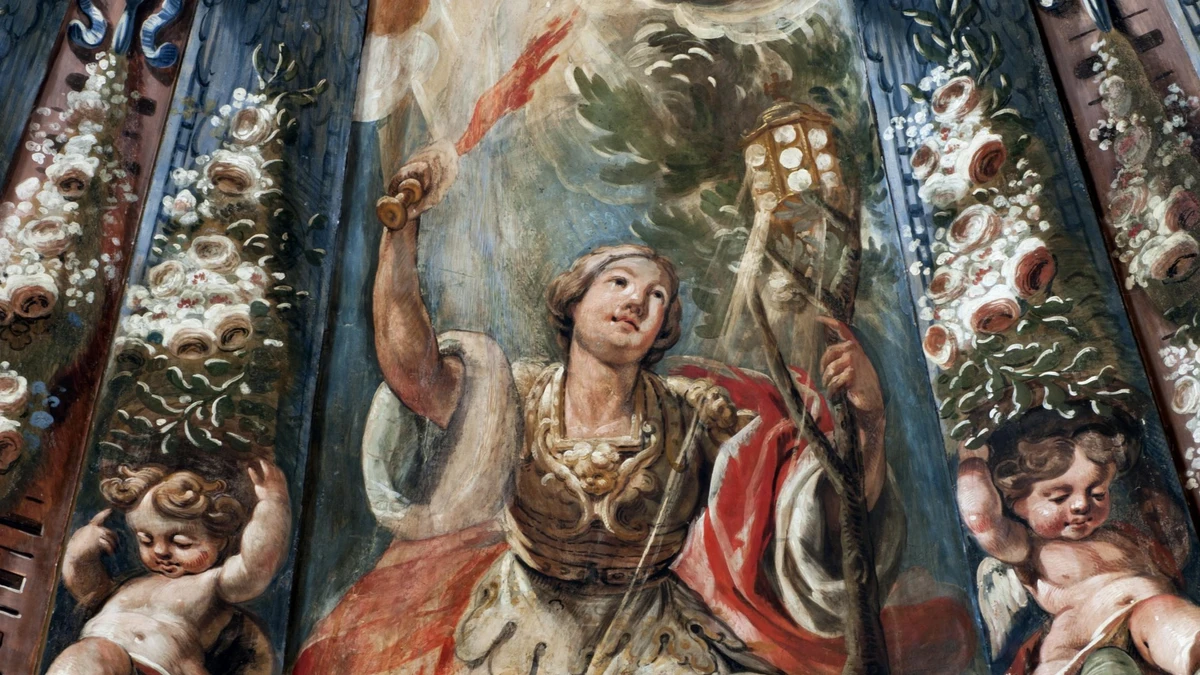Media pioneer Hermene Hartman’s Pilsen office space is one where smooth jazz plays during brainstorming sessions. As details about the launch of the next project are hashed out around the conference table, the sound of the passing Red Line train tries to overpower the conversation. But it can’t win. Why? Because Hartman is as Chicago as our pizza and our hot dogs. She can’t stop, won’t stop.
Just look at the coverage of Hartman in the Chicago Tribune alone. A search of the Tribune archives finds her name connected to academia, journalism, the civil rights movement, politics, pop culture, TV news, bookstore and magazine ownership, public relations and numerous local activists. Her work continues to hinge on her commitment and support for the Black community.
Although she is the niece of jazz singer Johnny Hartman and the daughter of Herman Hartman — who family members said was the sole Black distributor for Pepsi-Cola Bottling from 1935 to 1969 — the name Hermene Hartman is synonymous with N’DIGO, a moniker associated with the Black alternative publication and later the studio that she founded.
In a town noted for historical Black publications such as the Chicago Defender and Ebony and Jet magazines, Hartman created N’DIGO in 1989 to fill a void. Tired of seeing the way Black residents were cast in the media, she wanted to shift the narrative to one that was authentically from the Black perspective, one that was unapologetic.
“I was creating something new and different … something in between magazine style on newspaper. That’s what it was and it worked! People loved it,” Hartman said.
The free journal focused on personalities, news profiles and topics of interest to progressive Chicagoans. The weekly publication that centered real lifestyles of the Black middle class, however, ceased publication in 2017. But that year Hartman co-authored the book “N’DIGO Legacy: Black Luxe — 110 African American Icons of Contemporary History,” a collection of the publication’s “best and most interesting cover stories” over 30 years — all featuring people associated with making a difference in Chicago.
As Hartman writes in the forward, “We needed to author our story, history and contemporariness as it was happening in real time. We needed to tell the stories that had been untold, mistold and needed to be retold.”
Faces that graced N’DIGO’s cover included Barack Obama in 2003 before his presidency, August Wilson, Mamie Till-Mobley, Dick Gregory, Merri Dee, Herb Kent, Karen Lewis and Frankie Knuckles.
“The people in this book were all worthy of mainstream stories but some kind of way didn’t get them,” Hartman said. “Mainstream media does not serve us correctly. Emmett Till, the major newspapers never named him; he never had a name. And you’re still seeing this. When a white kid dies, they find a classmate, a teacher, a minister, a relative to comment, and this kid becomes human. When a Black kid dies, he’s a 15-year-old from Englewood. He has no name. We’re still dehumanized. I want to humanize, educate, inform, enlighten, provide insight.”
The Rev. Gregory Livingston of New York met Hartman when they were both working with the Rev. Jesse Jackson Sr. at the Rainbow PUSH Coalition. “What I love about her is when it gets down to business, Hermene understands that some of the issues that we’ve dealt with — life and death issues in terms of the community and being Black in America and everything that goes along with that,” he said. “She understands that emotions should not necessarily dictate our actions, but the emotions are fuel for our convictions.”
Hartman has been vocal about using the word minority in relation to the Black population, and she was adamant about capitalizing the B in Black long before publications like The New York Times deemed it necessary.
“Her life and legacy is pushing Black excellence … pushing the agenda of, ‘Hey, we’re here and I’m not gonna let you forget about it,’” said Eric Hammond, a videographer and editor-director at N’DIGO Studio. “She is always saying if we don’t tell our story, our story will never be told in the right way. That’s Hermene; she’s a voice, not afraid to speak and to get her opinion across about what she believes in, and that is pushing the African American agenda forward in a positive way.”
This year, as part of Black History Month, Hartman pivoted that positivity in a new direction by launching NDIGO Gumbo, a YouTube series resembling TED Talks, but for Black folks. It celebrates and honors those who add depth and richness to the tapestry of Black society. Hartman featured Black Ensemble Theater’s Jackie Taylor, teen prodigy Dr. Dorothy Jean Tillman, antique collector Floyd Jones and TikTok historian Shermann “Dilla” Thomas. Hartman, a lifelong Chicagoan whose signature dish is gumbo with Creole shrimp, said the videos are shorter than 15 minutes and allow her to showcase local thought leaders.
Christian McComb, a mentee of Hermene Hartman, the publisher of N’Digo, photographs behind the scenes of a documentary film shoot with Hartman on Feb. 9, 2024, in Chicago. (Vincent Alban/Chicago Tribune)
“My whole thing is Black intelligentsia — where does Black intelligentsia live, what does Black intelligentsia do?” Hartman said. “It’s you, talking unscripted.”
Hartman is known for reinvention. While she had aspirations of being a dancer as a child, she found her groove in the fields of sociology, psychology and anthropology, serving as an associate professor in behavioral sciences at City Colleges of Chicago. Hartman took a job producing the late Warner Saunders’ “Common Ground” show on WBBM-TV while she was still teaching.
Hartman segued into a director of development and communications role and then became vice chancellor of external affairs at City Colleges. By the time Hartman was serving as publisher of N’DIGO, she had created the N’DIGO Foundation that helped students with college scholarships and created The Hartman Group, a public relations firm.
When the decline in print media quelled the publishing of N’DIGO, Hartman pivoted to produce three newsletters a week. Five years ago, she created N’DIGO Studio, a cultural talk show featuring Chicago-centric authors, politicos and personalities discussing the city’s issues. The Emmy-nominated show airs on NBC at 1 a.m. Sundays and can be viewed on VON TV. The podcast version can be found on Apple.
The studio produced special programming this year for Black History Month, where viewers got exclusive interviews with authors such as Jonathan Eig and Cornel West. Twelve studio episodes are broadcasting on PBS stations at 5 p.m. Fridays through June 28.
“Hermene has always been indefatigable — look at her career, she’s worked in civil rights, she’s an educator, journalist, and now the chick is on television doing stuff,” said Hartman’s cousin Charles Mazique Jr., a retired teacher. “She seems to constantly reinvent herself. I don’t know what kind of vitamins she’s taking sometimes, but she’s constantly on the move, it’s pretty remarkable to see.”
Hartman does not have a sit-by-the-sidelines kind of personality, said Bill Trammell, her friend for over two decades. “She sees something happening, she gets involved and she knows the people to go to to get it done,” he said. “Hermene and I agree that we are at a very critical crossroads now as Black people. She recognizes that politics are not favoring us. She feels it is one of her missions to inform Black people so we don’t lose our legacies and our lore.”
Another way Hartman is doing that is with the Kickback program, which offers workforce training in media and entertainment for college-aged students to shore up Black representation in the media. Forty students have participated in the program so far, including some from DePaul University, Columbia College and Chicago State University. Youths attend workshops with people in radio and film to learn industry skills and vocabulary and create content that is posted on social media.
When the students complete the six-month training, they have a portfolio to show off their work. They learn how to work in front of the camera as talent and behind it as an editor, videographer or cinematographer. Recently, the interns did press for Broadway in Chicago with the shows “Tina: The Tina Turner Musical,” “The Wiz” and “Boop! The Musical.”
Hermene Hartman, left, speaks with Precious Adediran, a mentee, on Feb. 9, 2024, at the N’Digo office in Chicago. (Vincent Alban/Chicago Tribune)
Christian McComb, 22, a second-year online student at the New York Institute of Photography, has already been on his first movie set and is working toward getting his drone license, which he uses in his entertainment production. Iesha Brown, an N’DIGO intern, attended “The Wiz” and said it was a cultural celebration that left her with a renewed sense of pride and a deeper appreciation for the rich tapestry of African American heritage. Allison Bolden, 22, is a Chicago State student with a penchant for romantic comedies and a passion for writing. She envisions one day having her own Netflix series, working on documentaries or going into broadcasting.
“N’DIGO provides an opportunity for creatives who may not have had the opportunity to express themselves or to be invested into the industry like they wish to be,” Bolden said. “We’re not only gathering career experience, we’re networking amongst each other, building camaraderie. They provide you the freedom to explore.”
Melody Spann Cooper, chairman of Midway Broadcasting Corp., which owns WVON-AM 1690, considers Hartman a sister and a mentor. She admires Hartman’s boldness and credits Hartman with teaching her to find her voice at the table of power.
“Hermene is a grinder, not afraid to ask for her share,” Cooper said. “She is unapologetic in knowing who she is and her worth. She’s got a lot of male energy in a female body. And in business, the things that Hermene does and how she operates: If she was a man, she would be commended for it. But because she’s a woman, sometimes she is challenged on it. But as hard as Hermene can be in the world, there is a soft spot on that porcupine.”
Gospel Fest founder and jazz singer Sasha Daltonn says Hartman has always been a doer and a giver. “Hermene has definitely been one of the trailblazers in Black media. I can’t think of another Black woman who single-handedly had a publication like she did with N’DIGO, that lasted so long,” she said.
When the term retirement is mentioned to Hartman, she scoffs.
“Why do I want to retire? That’s not me,” she said. “Giving to these kids, it’s a big thing. This is the way I look at it. Four years ago, The New York Times said we’re going to capitalize the B in Black, that says it all. Y’all are just now capitalizing us as a proper noun, really? No, there’s too much work to be done.”
As far as Hartman is concerned, her legacy is one of hope.
“I hope I informed about the Black lifestyle authentically and I hope I taught the media how to do that,” she said.





